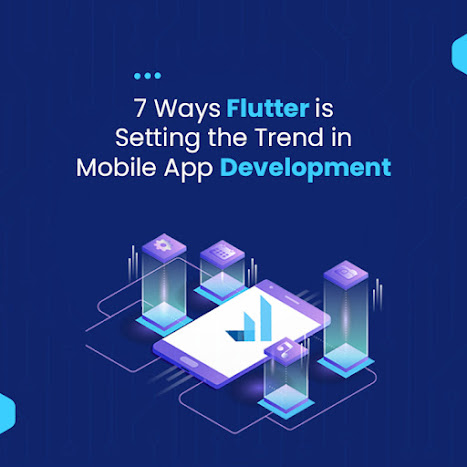How Will Web 3.0 and NFTs Impact Ecommerce in 2022?
Did you notice? The World Wide Web is witnessing something, and it's happening quickly. You may have read about teens selling digital assets for millions of dollars or anonymous crypto founders flipping traditional money concepts upside down. What is all this exciting and sometimes bizarre stuff about? Because the future is becoming more complex, there is no one answer. It's not about abandoning the internet as it is and moving into unknown and uncharted territory. It's about accepting concepts such as Web3, blockchain, and NFTs. Experts predict that NFTs will be commonplace within ecommerce in less than five years. If you want business growth, it's time for you to plan. It can be difficult to grasp these concepts. Once you get used to them, you'll see the potential of eCommerce.
WHAT IS WEB3? - THE NEAREST GENERATION OF INTERNET:
Before we get into the details of these new trends, let's first look at the larger concept of the next-generation internet. Web3, also known as Web 3.0, is a new version of the World Wide Web. Web3 is often contrasted to the current Web 2.0, also called the participatory internet.
Web 2.0 data is centralized, which means that it is mainly owned and controlled only by a small number of prominent players. These large corporations are commonly called "Big Tech," a term coined by one co-founder of Ethereum. Web3 enthusiasts see a very different digital world today, with Big Tech companies monopolizing power.
Web3 is a new digital universe that uses blockchain and other blockchain concepts such as decentralization and token-based economy. Web3's decentralized nature removes Big Tech from the equation and any intermediaries. That is what makes it appealing. Web3 is not a platform that allows users to access the internet via Google, Apple, and Facebook. Instead, individuals own and control their parts of the internet.
Web3 removes intermediaries and trust from virtual transactions. Blockchain technology ensures that transactions are secure and payments are reliable. Web3 could also protect user privacy better, as it is primarily Big Tech that collects potentially sensitive data.
Characteristics Web3:
- Information is primarily free and open-source
- All transaction information must be unique and authentic
- Every person is the owner of their data
- Defi (Decentralized Financial Institution) and cryptocurrency have replaced the centralized monetary system.
- All transactions and ownership remain anonymous
ALL THAT GOLD IS NOT GOLD:
That is the utopian vision of Web3 that hard-core crypto enthusiasts have portrayed. Web3 might not be as egalitarian in reality. One aspect of Web3 currently gaining traction is Decentralized Finance or DeFi. DeFi is about financial transactions on the blockchain without the assistance of banks or the government. DeFi is attracting large companies and venture capital firms, which are investing substantial sums in the development of Web3. It is hard to imagine how their participation will not lead to a different type of central power.
A RISING DEMAND:
Web3 is still a new concept, and Big Tech is alive and well, but some trends are highly relevant from an ecommerce standpoint. The frenzied demand for Non-fungible Tokens (NFTs) is one example. Crazy bidding wars are already erupting for digital assets. That includes everything from the Nyan Cat, which sold for almost $600,000—to a tweet by Jack Dorsey, Twitter CEO, which sold for a staggering $2.5million.
Let's look at the NFT category before we get into this. NFTs are one type of cryptocurrency asset. They are part of the Ethereum blockchain. NFTs can be distinguished, unique digital objects that range from music, art, games, tweets, and even Twitter. It can be bought and sold online by the usage of cryptocurrency. While currencies such as bitcoin and traditional money are "fungible," meaning can trade one for the other, NFTs are unique, so their name is "non-fungible." Each NFT comes with a digital signature that can't alter, and owners can verify ownership by using that signature.
THE NFT MARKET - TO THE MOON:
Like any asset, NFTs can grow in value. They seem to be increasing in value without limits at the moment. Buyers are not unusual to pay thousands or even millions for the most sought-after NFTs, making the NFT market a new speculative marketplace.
WHAT ARE THE IMPLICATIONS OF ECOMMERCE?:
Already, Web3, crypto, and NFTs have an impact on ecommerce. This trend will only continue. As startups innovate at lightning speed, blockchain use cases are expanding. Let's take a look at real-world examples to see how this affects the ecommerce landscape.
TRUSTLESS ECOMMERCE-LANDSCAPE BASED UPON BLOCKCHAIN:
Consumers will likely buy products online through webshops using innovative, contract-enabled, and distributed apps (dApps). These transactions will be immutable, trustless, and can be executed by self-executing code. That will reduce fraud, chargeback fees, and returns. Trust is still the main driver of ecommerce today. However, Web3 will place less emphasis on trust as it is the blockchain that guarantees transactions. Ecommerce users will have the option to pay with cryptocurrency just like they do with PayPal or credit cards.
ECOMMERCE Loyalty Reward Programs BASED ON NFTS:
NFTs are used in ecommerce for monetizing loyalty programs. These programs typically reward you with points for each purchase. You can use these points to redeem for products, discounts, or even bigger bonuses.
NFTs enable companies to offer more valuable loyalty rewards. Companies can now issue NFT-based tokens with a predetermined value to customers instead of just giving them random points.
CUSTOMER EXPERIENCES WITH THE METAVERSE:
Like many emerging technologies, there is no one definition or model of what the Metaverse will look like, and we know it is coming, and it is already here. The Metaverse is an extension of many emerging technologies, e.g., AR and VR, blockchain, cryptocurrency, and social commerce. The Metaverse can be described as a world of virtual spaces in 3D, which are constantly expanding and become their economy. Ecommerce brands have an exciting challenge and opportunity to create customer experiences in Metaverse.
NFTS TO BUILD COMMUNITIES:
Startup POAP is an example of how innovators expand the concept of NFTs. POAP stands for Proof Of Attendance Protocol. That is their business idea. This startup raised $10 million in a seed round to help develop the concept. The idea is to turn participation at events into NFT assets, "proofs of attendance." The idea is to use NFTs to build communities based on shared experiences. The POAP protocol is represented visually by badges. For example, you could scan a QR code in real-time to receive an NFT memento that will allow you access to an online community.
B2C COMPANIES ARE NOW EMBRACING NFTS:
NFTs are appealing partly because they allow digital art holders to build online communities and offer members perks. This booming NFT market has seen companies like Nike, Taco Bell, and Coca-Cola take their chances. Many have created their NFT art, often linked to fundraising campaigns. Others are investing in blockchain technology. Reddit is one example. It uses Web3 technology and blockchain technology to allow users and contributors access to their communities.
Conclusion:
We are always looking for new ways to help our clients create new revenue streams. Web3 and NFTs offer endless possibilities for eCommerce applications. We're happy to help you navigate this new landscape and discover where you could apply new technology to propel your business forward. We would love to aid you in producing ideas and turning them into profit. For more information, get in touch with our experts!




Comments
Post a Comment